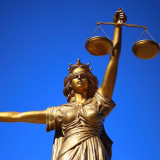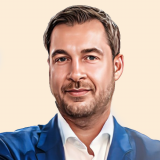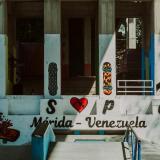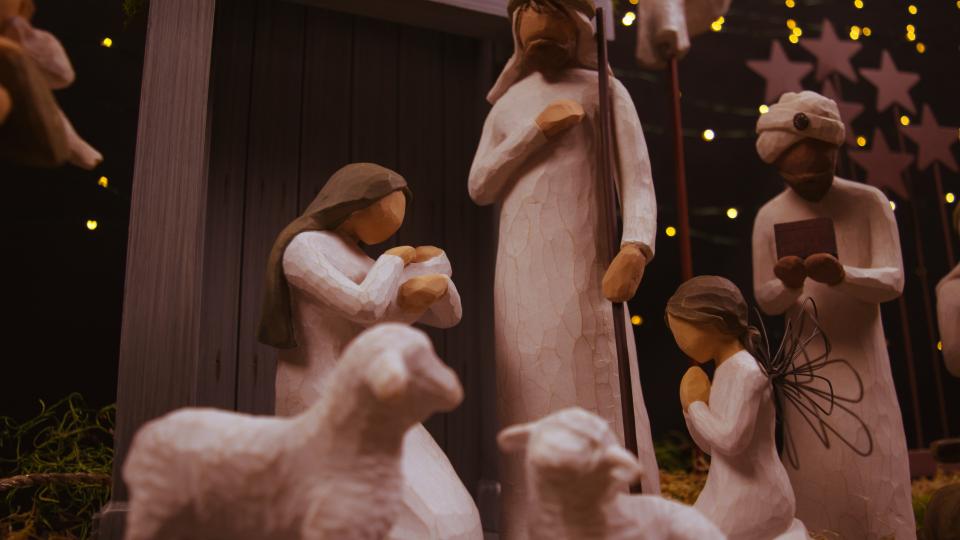
Several European funds have emerged in recent years that use religious principles as a basis for their investment decisions. Impact criteria, exclusions and Environmental, Social and Governance (ESG) factors play a dominant role when it comes to determining the content of these portfolios, as does direct guidance from churches.
The German Franciscan order, for example, this year ordered the TerrAssisi fund to sell a number of its investments. Apple became unwanted after a study at Columbia University found that its products perpetuate social exclusion and ostracisation. Dutch biosciences group DSM-Firmenich, a widely held sustainability stock, had to be sold because of its animal testing practices.
The TerrAssisi Fund, with some 988 million euro fully invested in about 80 companies, is among the larger European investment funds underpinned by religious principles. Since 2009 the fund has been run on behalf of the Franciscan Order by Cologne-based asset manager Ampega, which manages some 170 billion euro.
Catholic principles
Other funds that operate on a similar basis are the 27 million euro Labor et Caritas fund, offered in Belgium by Dutch investment bank Kempen Van Lanschot. Amundi, Europe’s biggest asset manager, runs a 28 million dollar Catholic Principles ETF. Franklin Templeton and Invesco offer similar ETFs, respectively with 60 million euro and 29 million euro in assets, guided by “exclusions from broad consultations with the Catholic Church,” as investment documents say.
And in the United Kingdom, the Church of England is well known as a major institutional investor, managing a 11.8 billion euro investment fund in an ethical and responsible way. “Critical focus needs to be on real world impact,” its chief investment officer Tom Joy says on its website.
‘Gut feeling’
The management of the Franciscan Order’s TerrAssisi fund leverages “feasibility-orientated imagination and intuition, or 'gut feeling' if you will,” to use the words of Franciscan friar Johannes Freyer OFM.
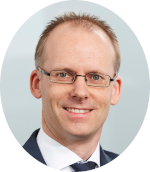 Ampega’s manager of the TerrAssisi Fund, Sebastien Riefe, explained that the fund invests in 70 to 90 companies demonstrating a strong ESG orientation. Investments in the fund are not only "absolute best-in-class", but must also meet strict exclusion criteria, guided by the ethical principles of the Franciscan Order.
Ampega’s manager of the TerrAssisi Fund, Sebastien Riefe, explained that the fund invests in 70 to 90 companies demonstrating a strong ESG orientation. Investments in the fund are not only "absolute best-in-class", but must also meet strict exclusion criteria, guided by the ethical principles of the Franciscan Order.
The order this year raised a red flag on four investments, Riefe told German investors in a recent webinar. In addition to Apple and DSM, these were on Daikin Industries, a Japanese industrial group and weapons producer that now is playing a major role in the expansion of the country’s military, and US healthcare company United Health, whose products are used for euthanasia.
Sins can be forgiven
Being blacklisted by the Franciscan Order does not mean a company is considered unwanted forever. As is customary in the Catholic church, sins can be forgiven. Once a company repents, it can be reconsidered.
German software group SAP for example faced a red flag in 2017 following corruption practices in Africa. By 2022, the company had dealt with these problems and had appointed new management. In 2023 it was added again to the TerrAssissi fund.
The TerrAssisi fund applies a barbell strategy that balances offensive investments in technology with defensive ones in healthcare. Consistent dividends and quality-growth criteria also are applied. In 2023, the fund returned just above 20 percent. In the last five years, it returned an average 13.8 percent.
Nvidia as shining star
Technology was the star of its 2023 performance, thanks to stocks such as Nvidia, AMD, Salesforce and Adobe. The position in Nvidia, held since 2017, was halved this year, said Riefe, but the relative weighting of the stock in the TerrAssisi portfolio now is bigger than at the beginning of this year after the stock jumped more than 200 percent. Since 2017, its Nvidia investment yielded more than 850 percent, or an average of 45 percent per year.
In the financial sector, TerrAssisi holds European insurance companies Munich Re and Swiss Life. Materials are the fund’s third category, with holdings in gas producers Linde and Air Liquide.
Underperformers in TerrAssisi this year were Orsted, a Danish healthcare company that faced an unexpected write-off in the United States; biopharma group Bristol Myers Squibb, which suffered from a poor product pipeline; and drinks giant Diageo, which had to adjust its guidance following a poor performance in Latin America.
Riefe said he is considering adding Orsted again to the fund, and remains confident that both Bristol Myers and Diageo will maintain their dividend policy.
Inditex as bright newcomer
A total of nine new companies were added to the fund this year. Among them is Spanish fashion group Inditex, known for popular brands like Zara and Massimo Duti. Inditex is a leader in its sector, Riefe pointed out, referring to the firm’s top sustainability ranking among 127 textiles firms. Abstaining from using dangerous chemicals, regular water testing and social labour policies feature among Inditex’s sustainability actions. On top of that, it has very short production cycles, does not hold much stock, thus can anticipate swiftly on changes in fashion demand.
Although TerrAssisi has historically yielded some 12 percent per year, Riefe projects a return of between 2 and 10 percent for 2024. “We assume that it will be a difficult year in economic terms, with a weak economy in Europe and the US,” Riefe said. “The year-end rally euphoria will diminish. Earnings expectations for next year are still too high. Interest rates remain high, and that will press profits to single digit growth.”
‘Shaping a future worth living’
In terms of religious guidance, Franciscan friar professor Johannes Freyer has made clear that investing should not only be about reason and intuition. Writing on the fund’s website earlier this year, he said these traits need to be “combined with a social conscience and a love of the world around us.”
“This is about more than just economic growth; it is about shaping a future worth living for all people, regardless of which continent they live on, and for nature as a shared environment,” Father Freyer said.
Further reading on Investment Officer:
- TerrAssisi fund: ESG investing inspired by Saint Francis
- Will EU exempt finance from its corporate conscience?
- ‘Positive ESG impact doesn’t come at a financial cost’

